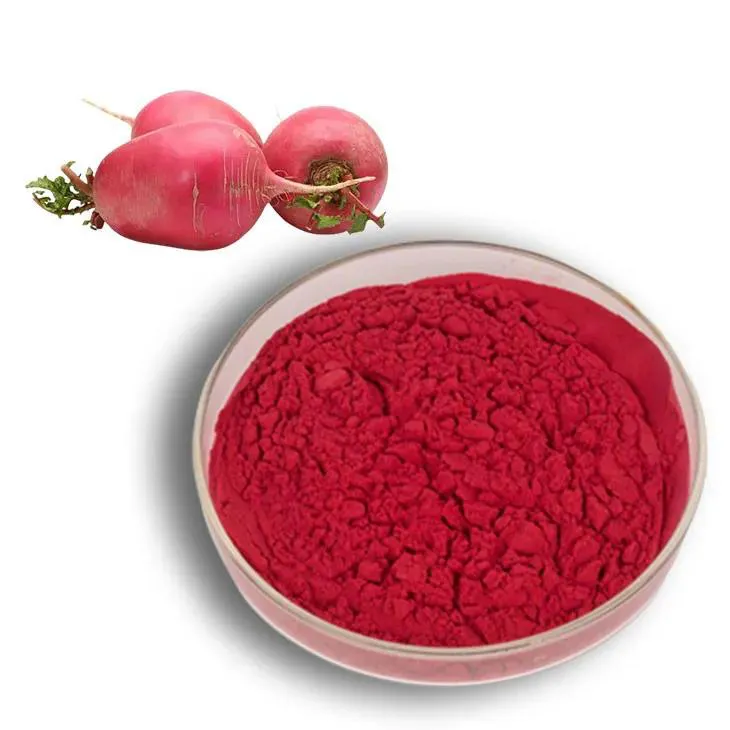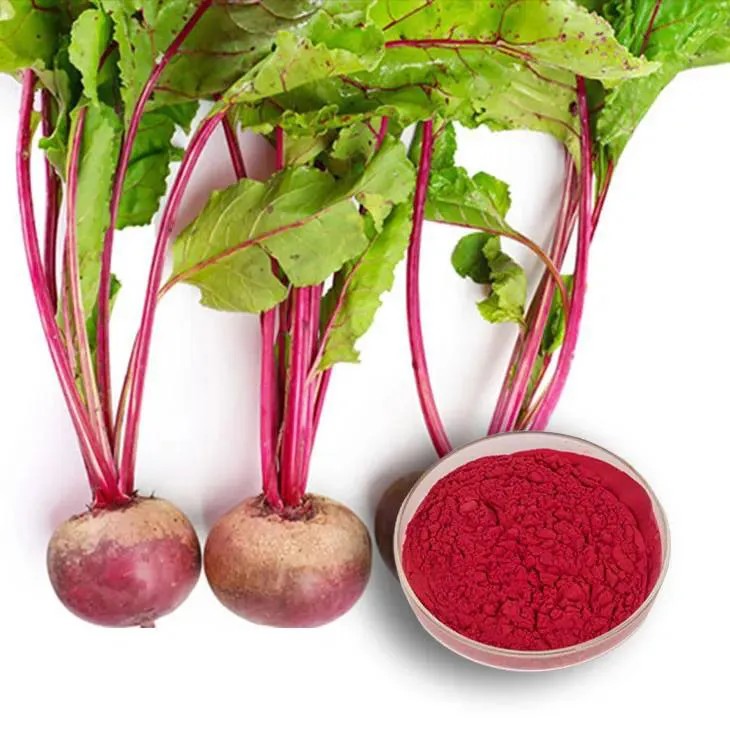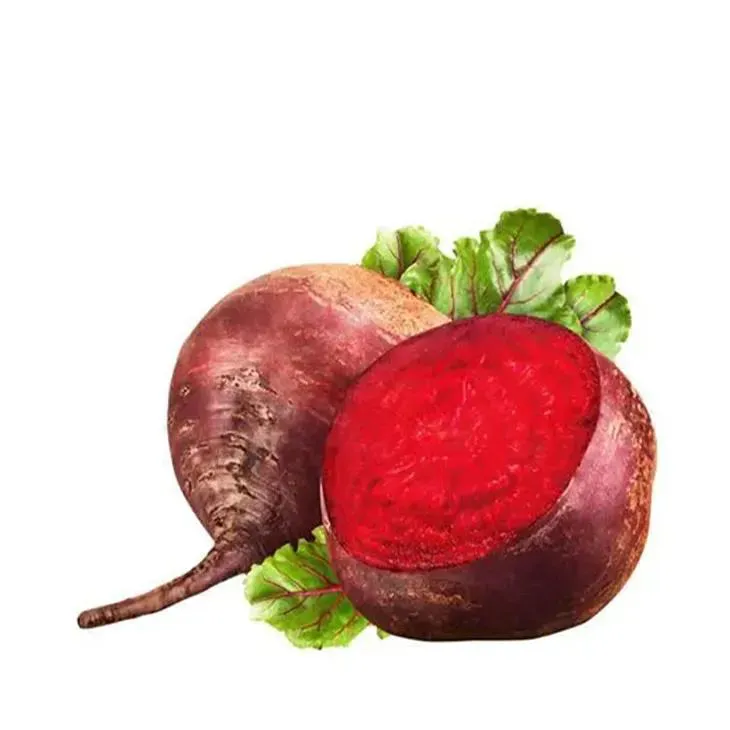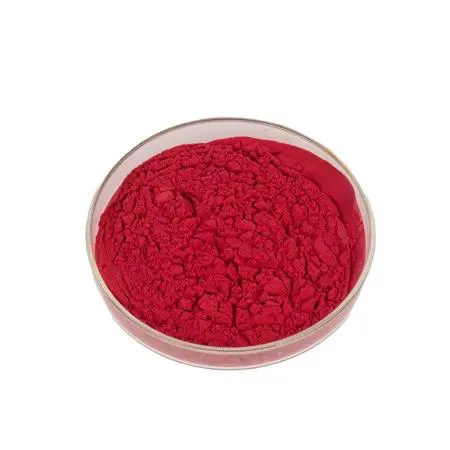- 0086-571-85302990
- sales@greenskybio.com
Beetroot Juice Powder: Unveiling its Nutritional Advantages and Potential Side Effects
2024-07-18

1. Introduction
Beetroot juice Powder has been gaining significant attention in the field of nutrition in recent years. It is a concentrated form of beetroot, which is known for its vibrant color and numerous health benefits. As more people are becoming health - conscious and seeking natural ways to improve their well - being, Beetroot juice Powder has emerged as a popular choice. This article aims to explore the various nutritional advantages of Beetroot juice Powder as well as the potential side effects that one should be aware of.

2. Nutritional Advantages of Beetroot Juice Powder
2.1 Rich Source of Nitrates
One of the most notable aspects of beetroot juice powder is its high nitrate content. Nitrates are compounds that can have a profound impact on the body. When consumed, nitrates are converted into nitric oxide in the body. Nitric oxide is a molecule that plays a crucial role in boosting blood flow. It helps to relax and dilate blood vessels, allowing for better circulation. This improved blood flow can have several benefits, such as reducing blood pressure, enhancing exercise performance, and promoting overall cardiovascular health.
2.2 Abundance of Essential Nutrients
Beetroot juice powder is also a great source of various essential nutrients. It contains vitamins such as vitamin C, which is an important antioxidant that helps to protect the body against oxidative stress. Vitamin C also plays a role in collagen synthesis, which is essential for healthy skin, bones, and connective tissues. Additionally, beetroot juice powder contains minerals like potassium. Potassium is crucial for maintaining proper heart function, regulating blood pressure, and ensuring normal muscle contractions. It also contains folate, which is especially important for pregnant women as it helps in the development of the fetal neural tube.
2.3 Heart Health Benefits
The combination of nitrates and other nutrients in beetroot juice powder makes it highly beneficial for heart health. As mentioned earlier, the conversion of nitrates to nitric oxide helps in reducing blood pressure. High blood pressure is a major risk factor for heart disease. By improving blood flow and reducing blood pressure, beetroot juice powder can help to decrease the risk of heart attacks and strokes. Moreover, the antioxidants present in beetroot juice powder, such as vitamin C, can help to reduce inflammation in the blood vessels, further protecting the heart.
2.4 Immune Function Enhancement
The nutrients in beetroot juice powder can also contribute to a stronger immune system. Vitamin C, as an antioxidant, helps to protect immune cells from damage caused by free radicals. Additionally, the presence of other nutrients like folate and minerals can support the overall functioning of the immune system. A well - functioning immune system is essential for fighting off infections and diseases.
2.5 Potential Anti - cancer Properties
Some studies suggest that beetroot juice powder may have potential anti - cancer properties. This is mainly due to the presence of certain compounds such as betalains. Betalains are pigments that give beetroot its characteristic color. These compounds have been shown to have antioxidant and anti - inflammatory effects in vitro. While more research is needed to confirm the anti - cancer effects in humans, the initial findings are promising.
2.6 Digestive Health Support
Beetroot juice powder can also be beneficial for digestive health. It contains dietary fiber, which helps to promote regular bowel movements and prevent constipation. Fiber also acts as a prebiotic, providing nourishment for the beneficial bacteria in the gut. A healthy gut microbiome is associated with better digestion, nutrient absorption, and overall health.

3. How to Incorporate Beetroot Juice Powder into Your Diet
There are several ways to incorporate beetroot juice powder into your diet:
-
Smoothies: Add a spoonful of beetroot juice powder to your favorite smoothie recipe. You can combine it with fruits like bananas, berries, and a liquid base such as almond milk or coconut water. This not only adds a nutritional boost but also gives the smoothie a vibrant color.
-
Juices: You can mix beetroot juice powder with water or other fresh juices. For example, you can create a beet - apple - ginger juice by combining beetroot juice powder, fresh apple juice, and a small amount of ginger. This makes for a refreshing and healthy drink.
-
Baking: Incorporate beetroot juice powder into baked goods such as muffins or cakes. Replace a portion of the flour with beetroot juice powder to add a nutritional element and a unique color to your baked treats.
-
Salad Dressings: Mix beetroot juice powder with olive oil, vinegar, and other seasonings to create a colorful and nutritious salad dressing. This can add a new dimension of flavor to your salads.

4. Potential Side Effects of Beetroot Juice Powder
4.1 Staining of Urine and Stool
One of the most common side effects of consuming beetroot juice powder is the staining of urine and stool. The pigments in beetroot, especially betalains, can cause a reddish - purple color in urine and stool. This can be alarming for some people, but it is usually harmless and a normal physiological response.
4.2 Digestive Issues
Some individuals may experience digestive issues such as bloating, gas, or diarrhea after consuming beetroot juice powder. This could be due to the high fiber content or individual sensitivities. If you have a sensitive digestive system, it is advisable to start with a small amount of beetroot juice powder and gradually increase the dosage to see how your body reacts.
4.3 Allergic Reactions
Although rare, allergic reactions to beetroot juice powder can occur. Symptoms may include itching, rash, swelling, or difficulty breathing. If you experience any of these symptoms after consuming beetroot juice powder, you should stop using it immediately and seek medical attention.
4.4 Interaction with Medications
Beetroot juice powder may interact with certain medications. For example, it can potentially lower blood pressure, so if you are taking blood - pressure - lowering medications, it is important to monitor your blood pressure closely when consuming beetroot juice powder. It is always advisable to consult your doctor before adding any new supplement to your diet, especially if you are on medications.

5. Conclusion
Beetroot juice powder offers a wide range of nutritional advantages, from improving blood flow and heart health to enhancing immune function and potentially having anti - cancer properties. However, it is important to be aware of the potential side effects as well. By understanding both the benefits and risks, individuals can make an informed decision about whether to incorporate beetroot juice powder into their diet or supplement routine. Whether you choose to add it to your smoothies, juices, or baked goods, beetroot juice powder can be a valuable addition to a healthy lifestyle.
FAQ:
What are the main nutritional components in beetroot juice powder?
Beetroot juice powder is rich in nitrates, which can be converted into nitric oxide in the body, helping to relax blood vessels and improve blood flow. It also contains vitamins such as vitamin C, folate, and minerals like potassium. These nutrients play important roles in various body functions, for example, vitamin C is crucial for the immune system, and potassium is beneficial for heart function and maintaining proper fluid balance in the body.
How does beetroot juice powder benefit heart health?
The nitrates in beetroot juice powder are key to its heart - health benefits. As mentioned before, they are converted to nitric oxide. Nitric oxide dilates blood vessels, which in turn reduces blood pressure. Lowering blood pressure is an important factor in reducing the risk of heart disease. Additionally, the potassium content in beetroot juice powder also helps in maintaining a healthy heart by regulating the heart's electrical activity and fluid balance in the body.
Can beetroot juice powder enhance immune function? If so, how?
Yes, it can. Beetroot juice powder contains vitamin C, which is well - known for its role in immune function. Vitamin C is involved in the production and function of white blood cells, which are the body's main defense against infections. Also, the overall nutrient profile of beetroot juice powder, including other vitamins, minerals and antioxidants, can support the body's immune system by providing the necessary building blocks for a healthy body, enabling it to better fight off diseases.
What are the potential side effects of consuming beetroot juice powder?
Some people may experience side effects such as digestive issues like bloating, gas or an upset stomach when consuming beetroot juice powder. This could be due to the high fiber content or individual sensitivities. Also, in some cases, the nitrates in beetroot juice powder can cause a harmless condition called beeturia, which is characterized by red or pink - colored urine or feces. People with kidney problems should be cautious when consuming beetroot juice powder as high levels of potassium may put extra strain on the kidneys.
How should beetroot juice powder be incorporated into the diet?
Beetroot juice powder can be added to smoothies, juices, or yogurt. It can also be used in baking or cooking to add a nutritional boost. For example, you can mix it with water to make a refreshing beetroot drink. When starting to incorporate it into your diet, it's advisable to start with a small amount and gradually increase the quantity to monitor how your body reacts.
Related literature
- The Nutritional Benefits of Beetroot Juice Powder: A Comprehensive Review"
- "Beetroot Juice Powder and Cardiovascular Health: Current Research"
- "Potential Side Effects of Dietary Supplements: The Case of Beetroot Juice Powder"
- ▶ Hesperidin
- ▶ citrus bioflavonoids
- ▶ plant extract
- ▶ lycopene
- ▶ Diosmin
- ▶ Grape seed extract
- ▶ Sea buckthorn Juice Powder
- ▶ Beetroot powder
- ▶ Hops Extract
- ▶ Artichoke Extract
- ▶ Reishi mushroom extract
- ▶ Astaxanthin
- ▶ Green Tea Extract
- ▶ Curcumin Extract
- ▶ Horse Chestnut Extract
- ▶ Other Problems
- ▶ Boswellia Serrata Extract
- ▶ Resveratrol Extract
- ▶ Marigold Extract
- ▶ Grape Leaf Extract
- ▶ blog3
- ▶ blog4
- ▶ blog5
-
Black Garlic Extract
2024-07-18
-
Withania Somnifera Extract
2024-07-18
-
White Peony Extract
2024-07-18
-
Lemon Balm Extract
2024-07-18
-
Bayberry Extract
2024-07-18
-
Lily extract
2024-07-18
-
Grape Seed Extract
2024-07-18
-
Horse Chestnut Extract
2024-07-18
-
Fig Extract
2024-07-18
-
Diosmin
2024-07-18





















